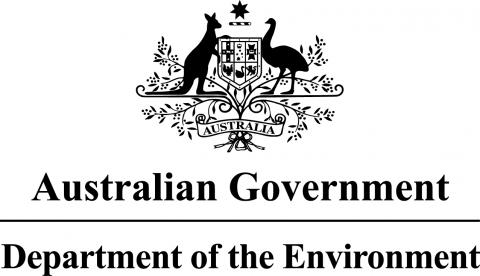You are here
Rising CO2 harms coral reef building blocks
Rising CO2 harms coral reef building blocks
Coral reefs are threatened by many things – cyclones, predators and rising sea surface temperature among them. Now, a study by NERP researchers shows the threat posed by ocean acidification on the algae that provide the building blocks for coral reefs.
As the level of CO2 in the atmosphere increases, oceans absorb more CO2, resulting in acidification of the seawater – measured by lower pH. Previous research has shown that ocean acidification has a negative effect on calcification in the skeletons of reef-building corals and other calcifying marine organisms. At low pH, corals have lower rates of fertilisation and reduced settlement of coral larvae has also been reported.
This new study looks at crustose coralline algae (CCA) – a critical component of coral reefs. CCA build carbonate for reef structure and act as a base layer for many invertebrates, including corals. Dense layers of bacteria, known as biofilms, occur on their surface and together the CCA and these biofilms signal swimming coral larvae to settle and permanently attach before forming their first coral polyp. This is a critical step in the recruitment of corals onto appropriate reef environments.
Ocean acidification may affect both the CCA and their biofilms, potentially reducing their ability to attract the larvae of corals and other marine invertebrates. In a study, as part of NERP project 5.2, to investigate the impact of ocean acidification on the recruitment of coral larvae on CCA, AIMS researchers exposed a dominant CCA species for six weeks to a range of elevated CO2 (low pH) conditions projected to occur over the next few centuries. The settlement of coral larvae was reduced by half on CCA exposed to pH 7.5. The pH 7.9 and 7.7 treatments reduced larval settlement by 20 and 24% respectively compared with CCA kept under present day conditions. Overall, the settlement success of corals was significantly negatively correlated with higher CO2 concentrations.
Additional experiments showed that low pH treatments did not directly affect the ability of larvae to settle but instead most likely altered the signalling biochemistry of the CCA or its microbial associates. Indeed, the microbial biofilms associated with the CCA were significantly altered when the pH dropped by only 0.2 units below the current seawater value of 8.1.
Further work is needed to determine whether ocean acidification directly affects the ability of CCA to attract coral larvae or whether the main effect is due to this shift in biofilm composition. Regardless, the findings signal for the first time a remarkable sensitivity in microbial communities associated with CCA to ocean acidification and at the same time reveal the risk posed by ocean acidification to coral recruitment processes that are critical for maintaining healthy coral reef ecosystems.
Find out more about Project 5.2 Experimental and field investigations of combined water quality and climate effects on corals and other reef organisms
Latest News
- Laws protecting the Great Barrier Reef to be introduced next week, Queensland Premier says - Thu 28th May 2015
- Let’s get serious about protecting wildlife in a warming world - Thu 28th May 2015
- We’ve only monitored a fraction of the Barrier Reef’s species - Thu 28th May 2015
- Great Barrier Reef: warmer waters helping coral-eating starfish thrive - Fri 13th Feb 2015
- You are what you eat—if you're a coral reef fish - Wed 17th Dec 2014


